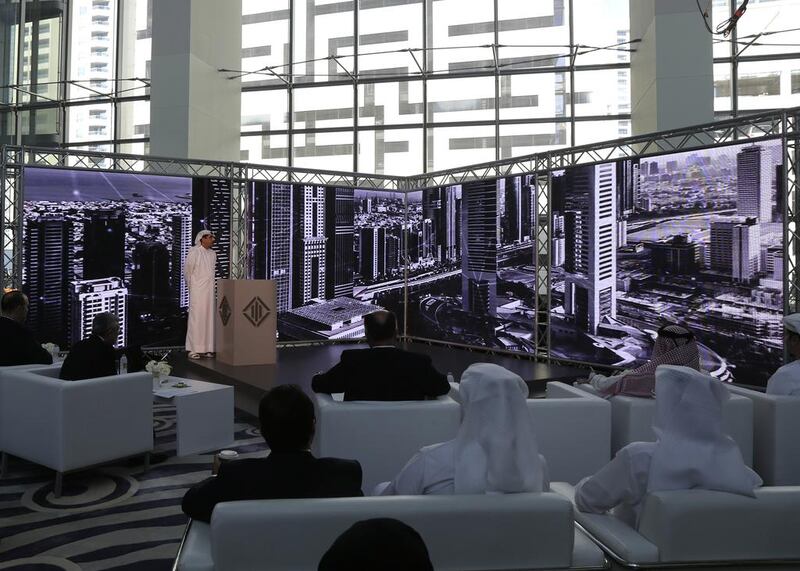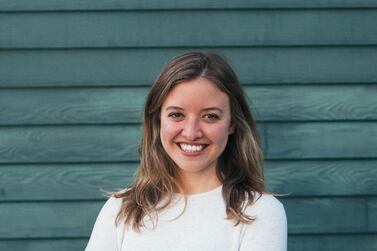FinTech firms with female founders are better investments.
That’s the conclusion from KPMG, which surveyed 91 financial-technology companies in the UK, including nine where at least one founder was a woman. The report, published at the weekend, shows that firms with a female founder have more than double the internal rate of return on average than peers where the initial entrepreneurs were all male.
KPMG acknowledged some limitations to the study, saying one large female-founded firm, London-based Starling Bank, which has raised £233 million (Dh1.12bn), might skew the results. Still, it said the findings are important.
“While the number of female founders or co-founders is low, the fact that they typically achieve a higher rate of return is a clear vote for more diversity,” said Anton Ruddenklau, global co-leader for FinTech at KPMG.
Here in the UAE, the FinTech start-up culture is becoming well established with initiatives such as start-up accelerator FinTech Hive, a scheme implemented by Dubai International Financial Centre, and the government has made significant efforts to attract entreprenuers to the country.
FinTech Hive was launched in collaboration with New York-listed technology company Accenture and since November it has forged a global partnership network through bridges with FinTech hubs in New York, London, Hong Kong, Kuala Lumpur, Singapore, Mumbai, Paris, Brussels, Holland and Bahrain, helping start-ups participating in the 12-week programme to gain further international exposure. DIFC recently launched an additional programme, in partnership with Startupbootcamp, dedicated to accelerating start-ups at an early stage.
Last week, more than 10 finance and investment deals and partnerships were struck between young Arab entrepreneurs and investors during the second Arab Youth Start-up Marketplace (AYSM) in Dubai. The event, organised by the Arab Youth Centre (AYC), was designed to bring together aspiring Arab start-ups from across the region to showcase their ventures, exchanging knowledge with like-minded creatives and industry leaders and ultimately collaborate with investors to boost their growth
As part of its initiatives, the AYSM seeks to establish a platform aimed at enhancing engagement between young entrepreneurs and investors from across the Arab world, creating an ecosystem that nurtures business leadership in creative industries and promotes knowledge exchange that results in business growth and prosperity.
''Easy-to-implement ideas into productive projects provided by the young entrepreneurs will support visions and efforts of governments in the Arab world to push development and prosperity wheels forward and encourage young minds to unleash their potential energies in areas of excellence and innovation so they can contribute in efforts aimed at building a sustainable, innovation-driven economy,'' said Shamma bint Suhail Faris Al Mazrui, Minister of State for Youth Affairs, and deputy chairman of AYC.
Last month, meanwhile, The National reported that the government is to provide long-term visas to the founders and owners of technology start-ups from around the world as it aims to draw in top talent to help it become one of the most innovative and dynamic countries of the future.
The five-year visas will be granted to owners or founders of companies, all of their partners and up to three executives. No sponsor is required as the visa will be in the names of the individuals they are provided to.
"It is a global set-up, it is open for anyone, it is inclusive, talent is not confined to one region and that is the whole idea. We have simply started with the 100 Arab start-ups because of this event and because of the amount of talent we have seen in this region and we want to leverage on this talent, but the idea is this is open for the world," Khalfan Belhoul, chief executive of the Dubai Future Foundation, told The National at the World Economic Forum.
In Europe, meanwhile, some established players are finding they are at risk of falling behind as young entrepreurs and their innovations start to shake-up thier sectors. For furniture giant Ikea, for example, which has a younger customer base than most other big-box retailers, the challenge is especially urgent.
“It’s a generational difference,” said Ray Gaul, senior vice president of research and analytics at Kantar Consulting. “Ikea has woken up to the fact they can’t deny this anymore and have to change with the culture.”
To address the issue, Ikea recently held a “start-up boot camp”, following a selection process that drew more than 1,100 entries worldwide.
The Swedish firm has already acquired TaskRabbit, a San Francisco-based start-up that dispatches workers to assemble furniture in customers’ homes. And it’s about to finish a prototype for a high-tech table that can brighten or dim room lighting with a sweep of the hand across the tabletop, according to Reuters. The technology uses electrodes covered with an electrically conductive paint developed by Bare Conductive, a London-based start-up that took part in Ikea’s first boot camp in 2018.
This year’s participants at the boot camp included Copenhagen-based Freemi, whose co-founders Rasmus Thude and Jamie Neubert Pedersen have developed an app to help people give away their old furniture and other possessions. “People, especially the younger generation, are fed up with our throwaway culture,” Mr Thude said. The service, currently offered in Denmark and the Netherlands, ties into Ikea’s goal of reducing waste.
Other start-ups Ikea is considering include San Francisco-based Jido Maps, which makes augmented-reality software that lets users save and recover digital objects from one session to the next; London-based Skipping Rocks Lab, which has developed edible food containers made from seaweed that could be used in Ikea’s cafeterias; and Copenhagen-based Flow Loop, which recycles and purifies water in the shower.
For entrepreneurs such as Mr Thude, a chance to partner with a company that sells $44bn worth of goods a year is worth the effort. Ikea, in turn, wants start-ups to see the retailer as “a natural partner”, Mr Krokstade said.
“When they have made an innovation they should come to Ikea and say ‘Hey, look what we have done. Can we co-create with you?’”







